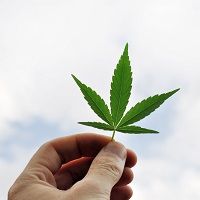Study Challenges Marijuana Use Linked to Several Conditions
Regarding pulmonary and mental health, an emerging study has reported teen marijuana use is not associated to the development of several conditions including depression, psychosis, allergies, headaches, or high blood pressure.

Regarding pulmonary and mental health, an emerging study has reported teen marijuana use is not associated to the development of several conditions including depression, psychosis, allergies, headaches, or high blood pressure.
The research was conducted by investigators from the University of Pittsburgh Medical Center and Rutgers University and published in the Psychology of Addictive Behaviors.
For their study, the team included 408 males who were followed from their teen years until their mid-30s. Since the data was gained from the Pittsburgh Youth Study, a program, which tracked these certain students who attended a Pittsburgh public school anytime from 1987 through 1988, the authors ensured the recruited students had similar test scores and parental education.
Based on marijuana use, the participants were designated into one of four groups: low or non-users (46%); early chronic users (22%); those who only smoked during adolescence (11%); and those who started marijuana use in their late teens and continued (21%).
“Early chronic users reported much higher marijuana use, which rapidly increased during their teens to a peak of more than 200 days per year on average when they were 22 years old. Their marijuana use then declined somewhat as they got older,” the researchers wrote.
The researchers addressed several limitations that were considered commonplace to these types of studies. Their results were adjusted for a myriad of factors, including socioeconomic status, use of other drugs, physical/mental health issues that developed before routine marijuana use, and access to medical care. The authors also accounted for issues specific to Black men (who made up 54% of the applicant pool), gauging whether they were affected more or less by the drug or experienced different medical outcomes compared to White males (who were 42% of those studied).
From 12 years of annual or semiannual surveys and a final follow-up when the patients were 36, the team found no difference in the rates of asthma, allergies, headaches, and high blood pressure based on marijuana use. The same rang true in the case of psychiatric disorders; as there was also no relationship between marijuana and an anxiety mood, or psychotic disorder diagnosis, regardless of race.
“What we found was a little surprising,” the study lead researcher, Jordan Bechtold, PhD, a psychology research fellow at the University of Pittsburgh Medical Center, added in a statement released by the American Psychological Association (APA). “There were no differences in any of the mental or physical health outcomes that we measured regardless of the amount or frequency of marijuana used during adolescence.”
While the researchers said their investigation adequately addressed several limitations, they cautioned that more robust context is necessary when determining marijuana’s effect on public health. The team highlighted important factors like cognitive, functional, and legal ramifications would particularly be relevant to this debate.
“We wanted to help inform the debate about legalization of marijuana, but it’s a very complicated issue and one study should not be taken in isolation,” Bechtold said.